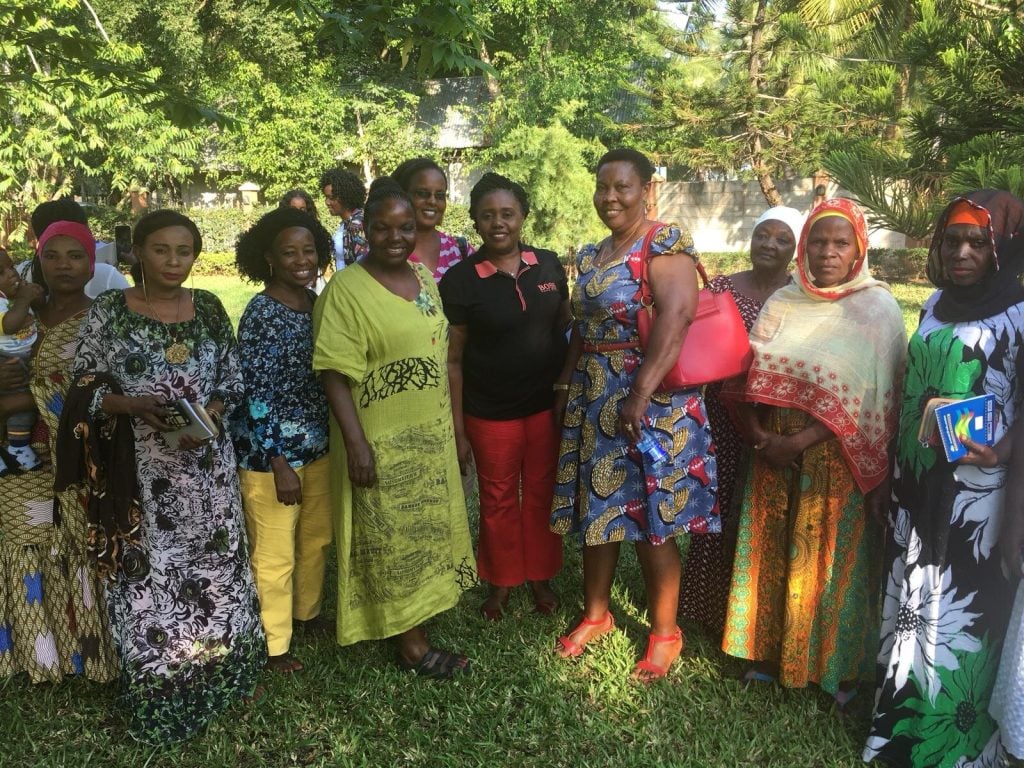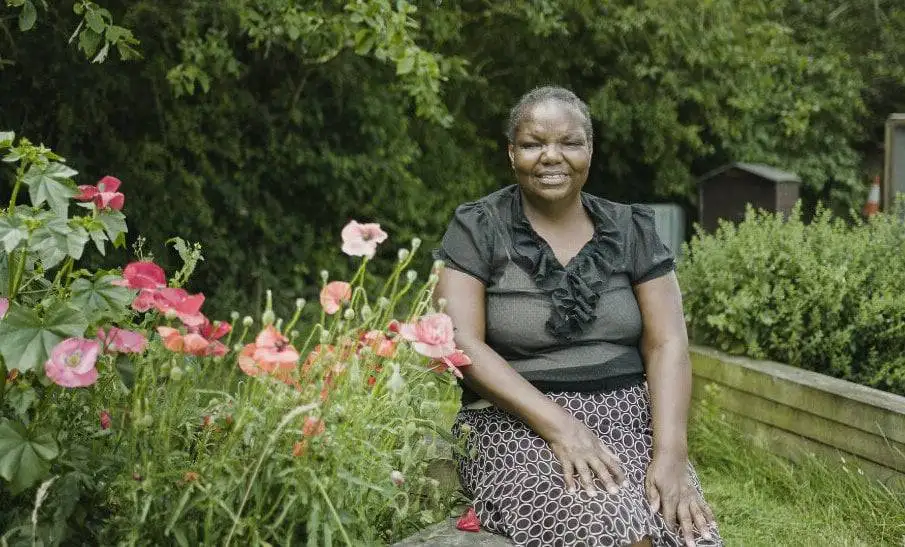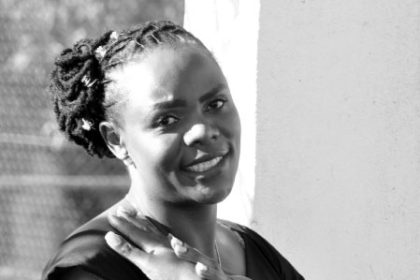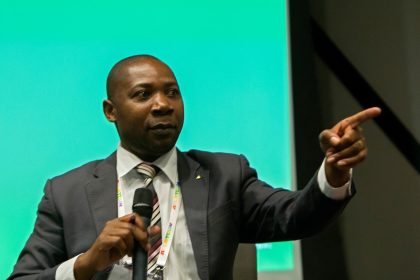Conversation with Nyasha Gwatidzo by Chris Bishop
Despite the enduring difficulties of her homeland, Guernsey-based multi-millionaire Nyasha Gwatidzo is living proof that expatriate Zimbabweans can make it anywhere.
Her life as a social care entrepreneur has been a rollercoaster ride of risk and reward, turning £800 ($1000) redundancy money in 1992 into a present-day turnover of £150m ($116m) with a business that has cared for thousands of vulnerable and traumatised children both in Africa and the United Kingdom.
Gwatidzo had dedicated her life to caring for children since the day a baby was strapped to her back in the village in the mountains near Inyanga, in the western highlands of Zimbabwe, not far from the border with Mozambique. She wasn’t much bigger than the baby, but had a feeling it was her future.
Hearing Gwatidzo talk fills you with that warmth, bordering on nostalgia, for a lost time of hope and confidence. It was the way many principled Zimbabweans used to speak with affection for their independent country when I arrived in 1994 for a five-year stint as a journalist.
A child of the struggle
Gwatidzo was a child of the struggle against white minority rule. In 1975 her father, Basil, a school principal, helped hustle future President Robert Mugabe over the border to Mozambique in the back of his car. As a child, she met Mugabe at breakfast one morning, but didn’t realise who he was until he was elected as leader of Zimbabwe in 1980.
Her mother Lucy returned home from England in April that year, to campaign for Mugabe’s ZANU party in the country’s first free election, alongside future deputy president Joice Mujuru. She was arrested and nearly killed by soldiers in that turbulent election.
“She was saying – ‘what have I done? I have left my children in England.’ They were pioneers – they really put their lives on the line,” says Gwatidzo.
Her parents had moved to Sheffield, in the north of England, not long after her father spirited Mugabe over the border, taking their children with them. They worked on the railways as they studied; Basil as a signalman and Lucy running a station.
The young Gwatidzo studied hard in social work at Reading University, where she thrived. She specialised as a psychotherapist, caring for vulnerable children with emotional difficulties.
A job as a therapist followed, at Camden borough council in London. Then came the recession of 1992 and the council made Gwatidzo redundant – with that payout of £800.
Chasing the dream
Her dream was to be the first to set up a private therapeutic home. In the early 1990s there was a growing gap in care for children in difficulty. Local authorities had neither the resources nor the capacity to deal with this.
In those days it was still possible for families who found themselves in the midst of conflict in Africa to scrape a few dollars together to put their child on a plane to Heathrow, or a ship to Southampton, in the hope that someone would look after them. These were the days before stringent travel restrictions. Gwatidzo knew of such cases through her work.
“These were unaccompanied minors – really, really, traumatised kids from war zones. We had a boy soldier from Rwanda, and an eight-year-old who came on a boat from South Africa. We had another girl from Zaire (now the Democratic Republic of Congo) who came to the UK at four or five years old with someone who was part of a paedophile ring,” she says.
Gwatidzo wanted to open a home for such children and realised that the local authorities were prepared to pay well for someone to take charge of a difficult issue. She secured a £1000 community loan to add to the redundancy money and went looking in London for premises.
Fifty-four landlords later, she got to Herne Hill, in south London, in despair. A kindly vicar opened the front door to her.
The clergyman explained that he and his wife were living at the vicarage around the corner and they were renting out their home. He gave her a three month grace period on rent.
By the end of July six children had settled down in the new home in Herne Hill. The next problem was to recruit a team of trained therapists to look after the children 24 hours a day. This meant a team of 25 to 30 specialists.
Despite strained finance, Gwatidzo soldiered on. The banks weren’t keen to give her an account. That meant she had to compromise her principles. Ever since she was a student she had boycotted Barclays for its work in apartheid South Africa. This was the bank she was forced to turn to in her hour of need.
“They gave me one condition: you cannot be overdrawn by one pound. Five pounds from my pocket opened the account. I was so pleased. Now I am turning over £150m, they still won’t give me an overdraft!” she says.
“I sold my soul… I was so determined to help the children. I always want to go back to the reason why I am doing it. I really compromised my values,” she says.
Yet the business smiled on this compromise. Local authority contracts came in and Gwatidzo was able to pay her first salaries in November that year.
“By December, I was turning over a million pounds. We were always full. There was a need for small homes. The councils had big homes, but their resources were not fit for purpose.”
Many happy outcomes
There were many happy endings to these stories. Not long after the homes opened, three brothers arrived on a plane escaping the Ethiopia-Eritrea conflict. Gwatidzo gave them a foster home at her own house. Nine months later their mother flew into Heathrow from Ethiopia and picked them up and took them home.
“It was happy endings for them, but I missed them,” she says.
Gwatidzo keeps in touch with most who passed through her care. A couple followed her into social work and another is an actor in the UK TV series Waterloo Road.
In 1994 she launched the Banya Family Placement agency, which places children in foster homes. In 2003 she founded the Vana Trust, that has supported thousands of children in the UK and back home in Zimbabwe with education and training. The Trust also has a farm, in Oxfordshire, where children find therapy in feeding and caring for animals.

Nyasha Gwatidzo (in yellow dress) at a meeting in Lusaka in 2019 where she first introduced her idea for a social impact investment fund that would help African women to grow their businesses (see below).
Supporting African women entrepreneurs
Gwatidzo rarely lets the grass grow under her feet. She is looking to the future and the struggle of women entrepreneurs in Africa.
“I am launching a $1bn investment fund for women in the region. I have been working on this for years – I had nine losses of family members – but I am working on it again. It is going to help thousands of women in the region. As you know in Africa the multiplier is great – helping one woman will also help 20-30 people. In Africa, the dollar goes a long way and the impact is going to be huge,” she says. More than 10,000 women have applied even before the fund is launched.
“It is a big ask, and also there are two more things. I am a black woman and I am asking people to invest in Africa, which is still considered high risk… When you start, when you say you want to invest in Africa they think ‘my money is going to Africa and never coming out’ – the conversation is very difficult.”
Zimbabwe’s travails
Gwatidzo is running two businesses in Zimbabwe – a market stall site and a farm – on behalf of the estate of her late brother. Power cuts and surging inflation continue to hit their prospects.
“Buying bread? One dollar today: it can be three dollars tomorrow. In 2008, my brother was running a supermarket and he said when he was ordering the flour, or the bread – before it got to the shop it was a different price. He was selling it at a loss. I think that is where we are going,” she says.
“Today, I was trying to have a Zoom meeting. I think we got cut off about five times – a meeting that should have taken me about 20 minutes took about an hour and a half. I don’t know how they do it in Zimbabwe, because you can go for three days without electricity.
“So, we made this appointment last week, for today, and he said it is a good job we made it for today because the last three days we haven’t had electricity!”
In the hospitals, it is even worse, she says. “You get admitted to hospital and the doctor tells you to go and buy your prescription at the pharmacy because the hospital doesn’t even have paracetamol. You might as well be shot.
“You go out and the pharmacy doesn’t have the medication and you die,” says Gwatidzo in her heartfelt manner.
“It is such a terrible, terrible, situation, and that is why they [the politicians] won’t go there because they know there is nothing there, so they will go to the best hospitals in the whole world and pay fortunes. And Mugabe did die outside of Zimbabwe [in a private hospital in Singapore]. I thought he would have led by example.”
Moving on from the struggle
Gwatidzo believes so much opportunity has passed Zimbabwe by since independence in 1980.
“Zimbabwe has such wonderful resources. They are still there. Most are still in the ground. There hasn’t been any investment really, and that is what Zimbabwe needs: to dig up those resources and distribute them fairly for the masses, not for the chosen few who happen to be politicians or businesspeople,” she says.
Gwatidzo says it is time for Zimbabwe to look further than its ageing war veteran leaders, who she feels are clinging to power for dear life.
“Very sad. It is about leadership really, I think it is a world problem, to have leaders who are prepared to put their life at risk.
“Mugabe did that to an extent. If we look at Mandela, for example, he was in prison for 27 years of his life, but there needs to be new, younger leadership coming out of Africa and saying enough is enough – we need to put our house in order. If the leaders are not presenting a good role model what are young people learning from this?”
Shouldn’t the outspoken Gwatidzo be talking politics for the people in Gwanzura rather than Guernsey?
“No, not in Zimbabwe. With my background, I am interested in politics. My children are interested in politics and they might become MPs, but they are based in the UK.
“We need people to look after this wonderful country of ours and its resources and there is no need to be in the trenches anymore,” she says with a tinge of sadness. Sadly, so many of the millions of Zimbabweans living around the world, who succeed and make money, feel the same.







